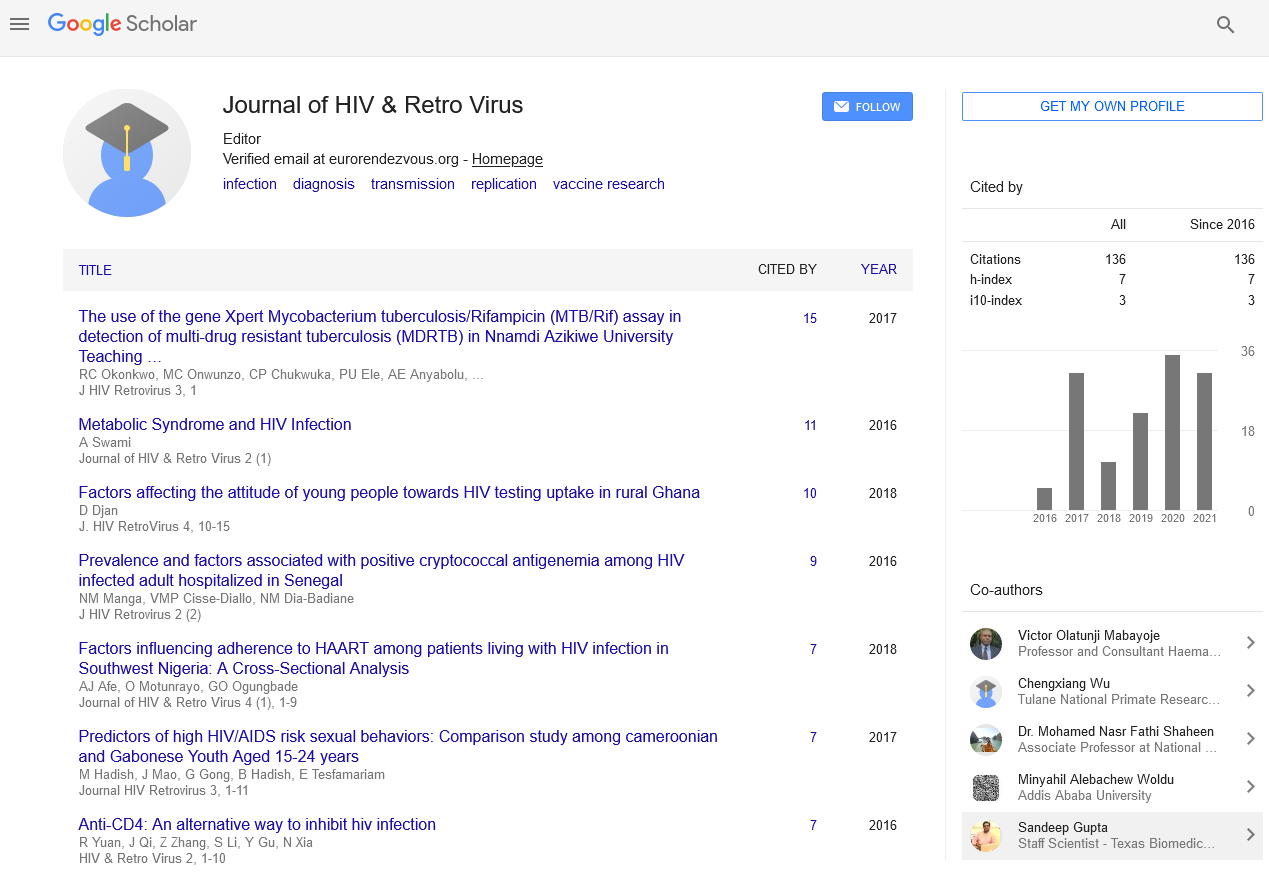Perspective - (2024) Volume 10, Issue 3
Exploring Sexual Health: Understanding and Navigating Sexuality
Sakura Sato*
Department of Medical Science, Tohoku University, Japan
*Correspondence:
Sakura Sato,
Department of Medical Science, Tohoku University,
Japan,
Email:
Received: 02-Sep-2024, Manuscript No. IPJHRV-24-21273;
Editor assigned: 04-Sep-2024, Pre QC No. IPJHRV-24-21273 (PQ);
Reviewed: 18-Sep-2024, QC No. IPJHRV-24-21273;
Revised: 23-Sep-2024, Manuscript No. IPJHRV-24-21273 (R);
Published:
30-Sep-2024, DOI: 10.21767/2471-9676.10.3.27
Introduction
Sexual health involves understanding and managing sexual
function, relationships, and rights. It encompasses safe
practices, consent, education, and addressing concerns.
Promoting sexual health supports overall well-being and
respectful relationships. Sexual health involves physical and
emotional well-being. Sexual health is a fundamental aspect of
overall well-being, yet it is often surrounded by misinformation,
stigma, and confusion. Understanding sexuality, practicing
safe sex, and fostering healthy relationships are crucial
components of sexual health. This article provides an overview
of sexual health, the importance of safe practices, and how
to address common concerns. Sexual health encompasses a
range of physical, emotional, and social aspects. It involves
understanding one’s own body, preferences, and boundaries,
as well as respecting those of partners.
Description
A healthy sexual life contributes to overall well-being and can
enhance personal relationships and self-esteem. Sexual health is
not merely the absence of disease; it includes the ability to enjoy
and engage in sexual activity that is consensual, respectful, and
fulfilling. Being informed about sexual health, contraception,
and sexually transmitted infections (STIs) empowers individuals
to make safer and more informed choices. Open and honest
communication with partners about desires, boundaries, and
sexual health is essential for maintaining a healthy sexual
relationship. Consent is a fundamental principle of sexual
activity. It must be informed, voluntary, and enthusiastic, and
can be withdrawn at any time. Practicing safe sex is crucial for
preventing the spread of STIs and unintended pregnancies.
Various contraceptive methods, such as condoms, birth control
pills, and implants, can help prevent pregnancy and reduce the
risk of STIs. Condoms, in particular, are the only method that
provides protection against both STIs and pregnancy. Routine
testing for STIs, especially for sexually active individuals with
multiple partners, helps detect infections early and prevents
their spread. Regular check-ups with a healthcare provider
ensure sexual health is monitored and maintained. Knowing
the risks associated with different sexual practices and using
protective measures accordingly can help reduce the likelihood
of STIs and unintended pregnancies. Sexual health is a personal
topic, and many individuals have questions or concerns
that may not be readily addressed. Issues such as erectile
dysfunction or difficulty achieving orgasm are common and
can result from physical or psychological factors. Consulting
a healthcare provider can help identify underlying causes and
explore treatment options. Symptoms of STIs can vary, and
some infections may be asymptomatic. If an STI is suspected,
seeking medical advice for testing and treatment is important.
Understanding and accepting one’s sexual orientation and
identity is a crucial aspect of sexual health. Support from
friends, family, or counselling services can be beneficial for
those exploring their sexuality. Healthy sexual relationships are
built on mutual respect, trust, and communication. Respect
each other’s boundaries, preferences, and desires.
Conclusion
Acknowledge and appreciate differences in sexual interests
and communicate openly about them. Building a strong
emotional connection enhances the sexual experience and
fosters intimacy. Spend quality time together and engage
in activities that strengthen your bond. Continually educate
yourself and your partner about sexual health and practices.
Staying informed helps both partners make better decisions
regarding their sexual well-being. In summary, sexual health
is a crucial component of overall well-being. By practicing
safe sex, communicating openly, and addressing common
concerns, individuals can enjoy a fulfilling and healthy sexual
life. Education, respect, and mutual understanding are key to
navigating sexuality and fostering positive relationships.
Citation: Sato S (2024) Exploring Sexual Health: Understanding and Navigating Sexuality. J HIV Retrovirus. 10:27.
Copyright: © 2024 Sato S. This is an open-access article distributed under the terms of the Creative Commons Attribution License, which permits unrestricted use, distribution, and reproduction in any medium, provided the original author and source are credited.

